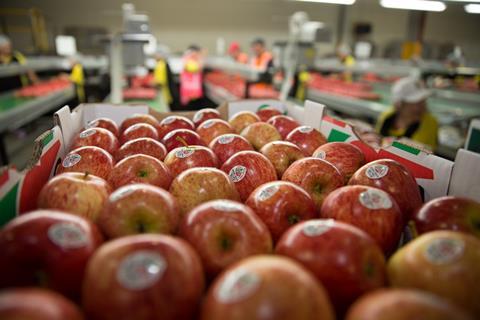
The head of German agribusiness conglomerate BayWa has called upon government officials to do everything in their power to boost the prospects of German and European fruit on international markets, particularly by improving access in Asia.
Speaking at the group’s annual general meeting in Munich, chief executive officer Klaus Josef Lutz implied that too much time had already been lost in breaking open third-country markets for fruit exports from the European Union, including apples from Lake Constance where the bulk of BayWa’s own domestic fruit production is concentrated.
Conversely, BayWa’s recent acquisitions in New Zealand – Turners & Growers, with its world-renowned Enza topfruit brand and trading company Delica, as well as its more recent purchase Apollo Apples – are able to ship their fruit to China, albeit meeting strict import protocols in the process.
“When it comes to trade policy, the task at hand is to make up for decades of neglect,” Lutz argued. “In view of the forecast demand for the Chinese market, the time for a common European Union marketing strategy has more than come.”
Lutz also reiterated his view that BayWa’s future depends on it becoming an international agricultural business, rather than a German one, a policy that has dictated recent investments not only in the fresh produce sector but in other parts of its business including renewable energy.
“Our aim in agriculture is to be leading in Europe with a global scope,” Lutz said. The company has added sales and trading companies for sales markets in North Africa, the Arab world and southern Europe.
“BayWa Agri Romania followed in the first quarter of 2015 to cover the important procurement market in Romania. In international fruit trading, the Group strengthened its own market position by acquiring New Zealand apple company Apollo Apples in order to improve the availability of goods for the growing markets in Asia.”
Following a strong performance in 2013, political tensions and further record harvests left their mark on markets in 2014, he continued.
“BayWa’s development in 2014, which was a difficult year, confirms the correctness of our strategy of expanding the diversified and internationalised business model. Our international growth business accounts for 44 percent of our operating result.”
The company generated revenues of €15.2bn in 2014, just down from €16bn in 2013. Its Agriculture, Energy and Building Materials divisions generated operating EBIT of €186.4m, also down from €195.6m during the previous 12 months.



